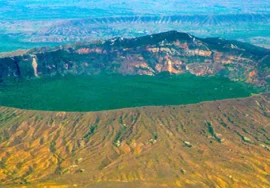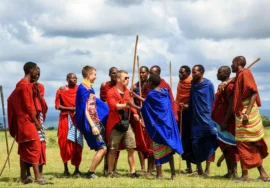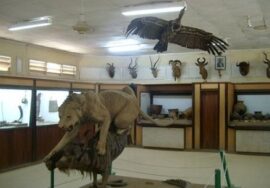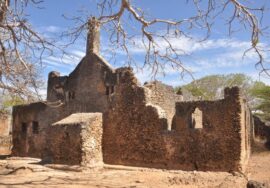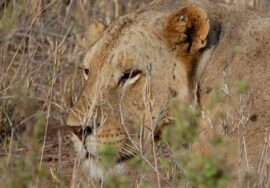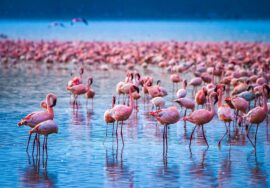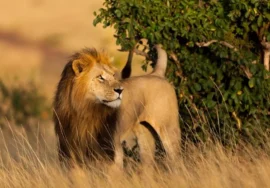
Swahili for Travellers
East Africa speaks one language, which is Swahili. It is an official language in both Kenya and Tanzania, along with English. More than 50 million people know Swahili, making it the most common language in Africa. However, only about a million people claim it as their mother tongue.
The language is also spoken in parts of Zambia, the Democratic Republic of the Congo, Uganda, Malawi, Somalia, and Mozambique. There are also a few people who speak it in Rwanda and Burundi.
Where Swahili came from
The Bantu groups that lived along the coast of East Africa used Swahili to talk to Arab sailors during the early days of trade. Swahili stayed a coastal language for hundreds of years. In fact, the word “Swahili” comes from Arabic and means “the coast.”
Over the years, it has become the regional language, combining words from different languages as the trade route grew and more countries started sailing and dealing along the coast.
A lot of the language comes from Arabic, but it also has elements from trade with the French, the Germans, the Portuguese, the English, and the Indians. However, the language and syntax are only Bantu (African). It’s a language that grew from talking to power builders, traders, and slavers over many years. The Swahili language spread to the interior of East Africa through trade and movement from the coast in the 1800s.
Swahili was used by Christian missionaries to talk to East Africans and spread the message, so they also helped the language spread. In fact, a missionary made the first Swahili-English dictionary. This is why writing Swahili uses English phonetics.
There are regional dialects of every language, and Swahili is no exception. For example, people who live on the coast speak a different form of Swahili than people who live on the island, and there are also differences between countries.
“Swahili was born in Zanzibar, grew up in Tanzania, got old in Kenya, and died in Uganda” is a Swahili proverb. On the coast, especially in Zanzibar, people still speak the purest form of Swahili. In Tanzania, most people speak and write in Swahili every day.
People in Kenya’s cities, especially Nairobi, don’t all speak it, and those that do mostly use slang words. Since Idi Amin’s rule, no one in Uganda wants to speak it because they think it is the language of the enemy.
Hello in Swahili
A friendly welcome works everywhere in the world, and being polite is an important part of a safari in East Africa. These are some popular ways to say hello:
Sijambo replied to Hujambo.
How are you?
Hello, hello
Hey there!
Sijambo’s answer to Hujambo
I’m fine, nothing is wrong.
Hello, hello.
As soon as the conversation starts, questions about home, family, and work generally follow. Swahili society is very laid-back and polite, and people think it’s very important to check on each other’s health. In Kiswahili, people who know the language are often confused by tourists who say hello and then get right to business before finishing their greetings.
Note that if you mix up the welcomes or forget the words, Swahili people will probably not get mad. Instead, they will probably smile big, find it funny, and understand that you are having trouble with the language. Most of the time, they’ll be glad you tried.
Habari is a word that means “news.”
Habari gani? — replied Mzuri
What’s new?
How are things going?
Habari yako?
How are things going?
Having a good time
Thank you for reading the morning news.
Habari za mchana
Good afternoon (news of the afternoon in words)
Habari za jioni
Good evening. (word news for the evening)
Mzuri’s answer to Habari
Good and nice
Beautiful
Beautiful
Here are some more words that will help you:
“Yes”—Ndiyo
Oh no! Hapana
Please accept my thanks.
Thank you very much and have a great day.
Thank you – Tafadhali
Please excuse me—Samani
It’s my pleasure to welcome you.
How much? Are you Shilingi?
Could I take a picture? —Ina kupiga picha
Where? – wapi
Can you speak English? – How about a kiingereza?
Best friend: Rafiki
What’s your name? – What’s up, nani?
Thank you – Kwaheri
Get enough sleep – Lala Salaama
That’s too bad (as in sorry) – pole
Pole pole, slowly
Slow down – endisha pole pole
What to Eat and Drink in Swahili
Kenya Getting food and drinks is an important part of any safari in Africa, and it can be good to know the words for some of the more common things.
Chakula is food.
Yes, hot or cold – ya moto/baridi
I love water.
Hot water – thank you very much
Water for drinking – maji ya kunywa
Soda and other soft drinks
Beer—bias
Milk, or maziwa
Cut meat – nyama
Chicken – kuku
SAMKI means fish.
BBQ beef – nyama
What Fruit Is This?
Foods for plants – mboga
Animals on Safari
It can be fun to know the names of the animals you see on safari in the local language, or to ask your guide about your favorite animals in his own language.
Buffalo – Kivu
What is a cheetah?
Elephant – Ndovuh or Tembo
Twiga the giraffe
Hippos and Kiboko
Hyena – Fisi
Leopard – Chui
The lion – Simba
Lion – Kifaru
Warthog – Ngiri
The Nyumbu Wildebeest
Zebra – Second family
Goat – Mbuzi
Dog – Mbwa
Cat – Paka
Mamba and Crocodile
Impala and Swala;
Gerenuk – Swala twiga
Bird – Ndege


